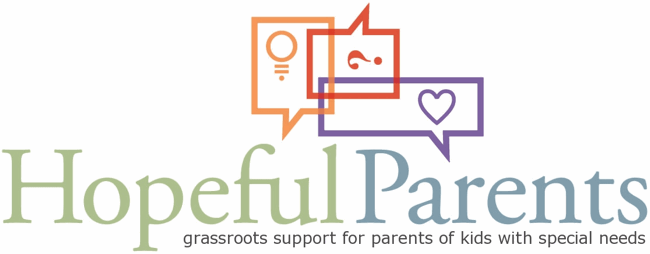Yep, time to fill out the dreaded emergency contact forms.
Who designed these things anyway?
Not someone wearing glasses, that's for sure.
And most definitely not a parent of a child diagnosed with special needs.
I sit at the kitchen counter, pen poised, ready to fulfill my obligation as a good parent.
I feel a wave of familiar nervousness. My stomach tightens as I am reminded of my own high school days and the nauseating feeling of complying with authority.
The lengthy form begins by asking me the basics....name, address, phone number?
OK, easy enough, I feel encouraged as I breeze through the top portion of the page.
The next section is always tricky for me, it asks,
Mother's Occupation?
After this question there is a very short line for a Mom to add things like: chef, president, nurse or technician.
I laugh to myself as I wonder, how on earth do I describe what I do for my child in a line that is this____________ long?
The emergency trips to hospitals and specialists, the combat negotiations with schools and insurance companies, the threading of feeding tubes, the passing of seizures, the nightly injections?
"Stay-at-home-mother" just doesn't seem to cut it.
OK, so I will admit it, I have a defiant side, and that willful part of me is eager to exert itself.
So, I enter in the shorten space......."master" parent.

I figure that "master" is a phrase that is used quite often in the working world. It is used to describe someone with many years of service and an abundance of relevant experience in their field.
We have "master' electricians, "master" carpenters and "master" chefs.....I figure "master" parent is a pretty good description of the quality of service I provide to my children on a daily basis.
OK on to the next section:
List of medications?
 After this question is a line as short as the first one.
After this question is a line as short as the first one.How on earth am I going to enter all of Nick's medications on a line that is this______long?
I enter "see back" and list the long line of supplements, vitamins, injections and medication.
Next question?
Hospital to transport to?
And of course, another short line.
How on earth do I explain in a line that is this ______long that if it is an emergency he must be transported to the nearest hospital, it if is not he is to be transported to Boston. How do I tell them what to do if he is having a seizure or if he loses alot of blood? How do I explain his risk of stomach rupture?
I enter my standard stock answer of "see back"
Next question?
Name of physician?
Since Nicholas sees about 12 different specialists, which name and number do I provide in the line that is this_____ long?
Once again "see back"
I fill out the final section of the form with emergency contacts and corresponding cell phone, business phone and home phone numbers.
My form is littered with writing. It has taken me 45 minutes to complete and I still do not have a good feeling that I have provided the school with enough information in case my child has an emergency. But I am happy the painful process is over and I smile as I sign the form...
"Lisa Peters, Master Parent"
That is until I realize........I need to complete another form for Weston.
Move over June Lockhart
Lisa Peters writes about family life at www.onalifelessperfect.blogspot.com. Please feel free to come visit us.









